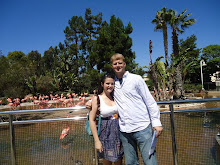
I recently picked up a copy of Water for Elephants because I felt a little culturally out of the loop for not reading it or seeing the movie. Before I start, I will say that I would not select this book for a young adult collection. It is about two things that I know very little about from my own personal experience, living in a circus and struggling with poverty during the Great Depression. I would recommend this book for a supplemental reading list if I high school Social Studies class were studying the Great Depression.
Jacob starts the story with a very charmed life, just like many Americans started life at the beginning of the Great Depression. As a Vet student at Cornell, he is pulled from one of his final classes and told that his parents have died in a car accident. He quickly discovers that his parents were hit hard by the Great Depression and have put themselves into extreme debt to pay for his Ivy League education.
Lost and slightly delirious by the prospect of his looming "future," Jacob finds himself on a circus train, a circus in need of a vet. Any observant reader can tell that he is going to fall in love with the show's star before Jacob even realizes it. However, to find out if he wins her away from her husband, the unbalanced master of animals on the show, you'll have to read it.
When I watched the movie, I was disappointed by the differences. There were more flashbacks to Jacob as an old man in a nursing home in the book and I felt that made him a more sympathetic character. However, both the book and the movie are worth your time to read and enjoy. Interesting lessons for readers can be found in how people struggle and cope with poverty. I felt like a complete jerk as I read this one on the beach! The reality of life for a little person or a struggling alchoholic in the Great Depression are stark and should impact any reader.




